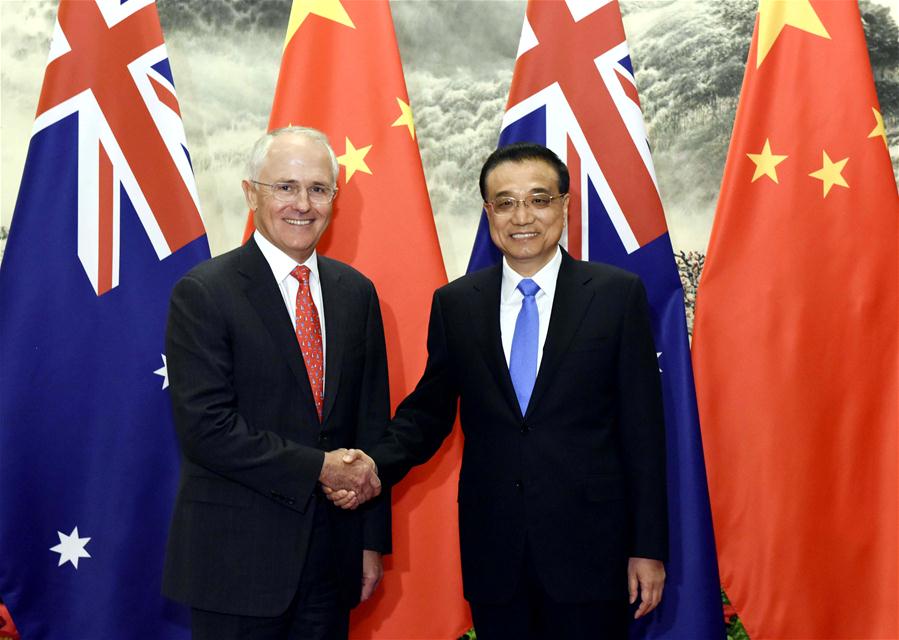Home » The Daily Brief: Wednesday, Mar. 22
The Daily Brief: Wednesday, Mar. 22

BALANCING ACT: CHINA AND AUSTRALIA

The most senior Chinese official to visit Australia in three years arrives in Sydney on Wednesday.
Trade will be a recurring theme throughout Premier Li Keqiang’s week-long stay, with discussions on the Regional Comprehensive Economic Partnership (RCEP) high on the agenda. The deal, which includes Australia, China and 14 other Asian economies, is regarded by some as an alternative to the debilitated Trans-Pacific Partnership. However, RCEP is far less comprehensive than the TPP when it comes to regulating labour, investment, intellectual property and the environment.
Chinese investments in Australia’s critical infrastructure may also be on the table. Australian policy makers have the unenviable task of balancing ties with the US – which it relies on for its security – and an increasing economic dependence on China. The results are often controversial.
Last year’s lease of the port of Darwin to a Chinese firm provided one such occasion. Canberra did not forewarn Washington of the Darwin deal, which troubled President Obama given that 2,500 US Marines are stationed there. If today’s meeting paves the way for future such agreements, the outspoken Trump administration may react more harshly.
Did deeper: Asian trade deals: USA bails, the region carries on
OUT OF THE DARK? BRAZIL’S ECONOMY

Poor economic management, spendthrift policies and ongoing political crises have tormented Brazil over the past two years, leading South America’s largest economy to contract every quarter within that timeframe. Onlookers will be hoping for some positive news when the country releases economic growth estimates on Wednesday.
Last year, President Dilma Rousseff was impeached after being implicated in a scandal involving state oil firm Petrobras, which cost the country an estimated $1 billion. Another huge bribery scandal surrounding construction firm Odebrecht threatens politicians in Brazil and neighbouring countries.
But things may be looking up. The country’s stock market has risen 37% over the past year, reflecting increased economic confidence. Meanwhile, interim President Michel Temer is pressing ahead with much-needed reforms, including austerity measures and critical pension reforms, which will raise the unsustainably low retirement age of 54 to 65.
The outlook for Wednesday’s data release is (relatively) rosy – analysts predict the economy will grow by 0.5% in 2017. However, amid political uncertainty, unfolding corruption scandals and depressed commodity prices Brazilians may not be out of the dark just yet.
WE MEET AT LAST: THE ANTI-ISIS COALITION

US Secretary of State Rex Tillerson is set to host all 68 countries of the Global Coalition to Counter ISIS for the first time since the group’s inception in 2014. At that time the terrorist group was devouring vast swathes of Iraq and Syria. Much has changed since then.
Over the past two years, ISIS has lost almost half of its territory in Iraq and 20% of its holdings in Syria.
Most recently, the extremist group lost control of eastern Mosul. Despite facing difficulties manoeuvring in the city’s narrow streets, the 100,000-strong Iraqi, Kurdish and Iranian-trained forces are expected to overcome the remaining ISIS fighters in Mosul in the coming weeks.
The jihadist stronghold of Raqqa is also on the brink of recapture, with three separate forces backed by the US, Russia and Turkey advancing on the self-declared caliphate’s capital.
Elsewhere, however, ISIS-affiliated groups are intensifying attacks. Since late 2016 Burkina Faso, Nigeria and Libya have seen an upsurge in jihadist activity, with at least 100 killed in the past month alone. Mr Tillerson and co will be looking for ways to curb these activities at their summit on Wednesday.
Dig deeper: Pressure building: what next for ISIS?
HAPPENING ELSEWHERE…
The Scottish parliament will vote on whether to open formal negotiations over another independence referendum with the UK parliament in Westminster. Meanwhile, PM Theresa May will attend her weekly question and answer session where debate will focus on next week’s Article 50 trigger. Our take here.
Opposition protesters in Zimbabwe are expected to demand electoral reforms. The country has been ruled by 93-year-old Robert Mugabe for 37 years; despite his advancing age, he says he’ll run for another term in 2018.
Canadian Finance Minister Bill Morneau will unveil the 2017 budget.

